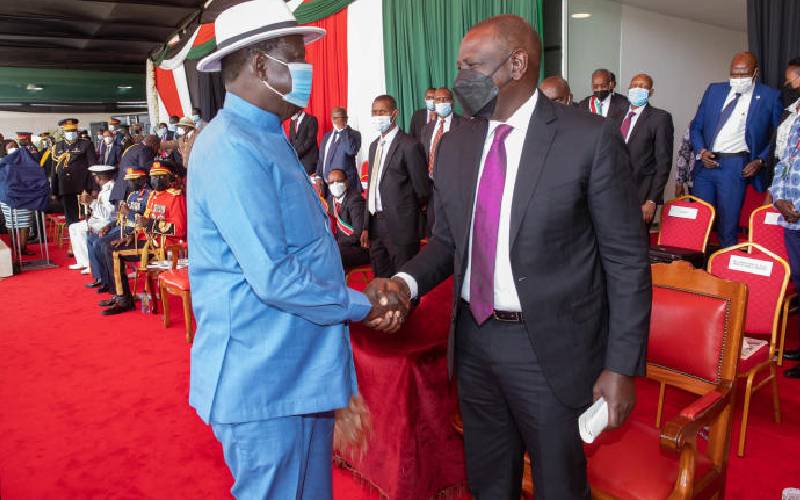×
The Standard e-Paper
Fearless, Trusted News

ODM leader Raila Odinga with Deputy President William Ruto during the Jamuhuri Day Celebrations at Uhuru Gardens Nairobi on December 12, 2021. [Emmanuel Wanson, Standard]
The sympathy vote has always played a big role in our elections, either silently or loudly. Presidential elections have been influenced by a certain level of sympathy voting globally. The assassination of Indian Prime Minister Indira Gandhi, for instance, paved the way for her son Rajiv to win 400 million votes in 1984.